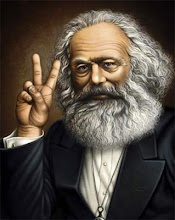O investigador Joseph Hanlon, do International Development Centre da Open University do Reino Unido, é um observador insistente da realidade moçambicana. A apresentação que fez num seminário em Outubro de 2009 tem anotações curiosas sobre as ligações da nomenklatura:
«The main company partly owned by the President is INTELEC, which is involved in electricity transmission and equipment, telecommunications, gas, consulting, cement, tourism, construction, Tata vehicles, and fishing. The company is headed by Salimo Amad Abdula, who is also head of the Mozambican business association, which gives President Guebuza a direct role in all Mozambican business. Intelec also holds 5% of Vodacom Moçambique, the private mobile telephone company which competes with the state operator and Abdula recently became chair of the board of Vodacom Moçambique, Cornelder de Mocambique which has the port management contracts for Beira and Quelimane is partly owned Guebuza (the majority is owned by Cornelder in the Netherlands and CFM, the state railway company).
Guebuza children and relatives have interests in various companies, often in participation with other children of the elite, and are involved in telecommunications, mining, construction, tourism, environmental issues, petrol stations, and a new grain terminal; several consultancy companies have also been established. Armando Guebuza is also a shareholder of some of them, particularly through the family company Focus.
Guebuza family companies have a number of projects around natural gas from a large field on the coast at Inhambane. Intelec had a gas fired power station supplying electricity to Vilankulo, the nearest city to the gas field. It is part of a group (linked to the French company Suez) building a second power station along the existing pipeline in Moamba, in part to sell electricity to South Africa. A company owned by another member of the family has the contract to convert and sell natural gas as motor fuel.»
Joseph Hanlon
in «Mozambique's elite - finding its way in a globalised world and returning to old development models»
skip to main |
skip to sidebar

Diretor
Censura

Leitores
Leituras
Jornais
- Africa Confidencial
- Analítica
- Açoriano Oriental
- Canal de Moçambique
- Correio da Manhã
- Der Spiegel
- Diário de Notícias
- Diário do Comércio
- E-noticias
- El Reloj
- Expresso
- Guysen
- Haaretz
- i
- Jornal de Notícias
- Jornal do Brasil
- O expressionista
- O indivíduo
- O país
- O Século de Joanesburgo
- Pletz
- Primeira Leitura
- Público
- Savana
- Sol
- The Independent
- Verdade
- Zero Hora
Caixote de Lixo
Arquivo
-
▼
2010
(587)
-
▼
janeiro
(63)
- A queda da utopia do Estado Social
- Maçonarias
- 31 de Janeiro de 1891
- Deputada sem coluna vertebral?
- Os campos da vergonha
- Is Mozambique’s elite moving from corruption to de...
- Turismo em Portugal, com lugares marcados
- Portugal: Where The Next Debt Crisis Will Occur
- Cursos universitários e cogumelos
- Tarefa patriótica: correr com esta gente
- Défice de credibilidade
- God Bless America
- Hugo Chávez, o ditador
- Parafuso 2009
- Gorongosa
- Um mundo diferente
- Um Estado injusto
- O golpe de estado
- O regresso do partido único
- O melhor momento
- Trabalhar para casa
- © Luca Helio - Lorena
- O pinto deu à costa, a bosta veio à superfície
- Uma estrela no chão
- Ao quarto dia... um louvor
- Batota climática
- Liberdade para o Irão / Free Iran
- Outra vez não
- A grande birra
- Quantos são?
- © Fleggard
- © Zeca
- À velocidade da luz
- TGV para a praia
- Novas oportunidades
- Contra a situação
- Chinesices
- Haja o que houver
- © Nicolas Grier
- O clima sempre mudou
- Turras estúpidos
- Primitivo Hezbollah
- Plano\nclinado
- © Luca Helios
- © Scaudon
- © Jurij Gurevich
- É a economia, estúpido
- Dossiê climático
- O cego
- Censuras
- Triunfo dos porcos
- Podia ser pior, podia, mas é transparente!
- Feudalismo teocrático
- Socialismo e caminho da escravidão
- Revisita ao Paraíso Socialista
- Do tempo dos dinossauros
- Do Sol Nascente
- Profissão: Pai
- Candidato: Santinho
- © Jaak Bellen
- © Antonov Sergey
- © Vadin
- Consciência tranquila
-
▼
janeiro
(63)
Etiquetas
Opinião
(330)
Socialismo
(193)
Economia
(162)
Negociatas
(153)
História
(116)
My God
(109)
Idiota
(88)
Comunismo
(84)
Turismo
(64)
Televisão
(62)
Liberdade
(57)
Música
(48)
Fotografia
(35)
Tecnologia
(35)
Fundamentalismo
(30)
Futebolês
(26)
Colonialismo
(21)
Terrorismo
(20)
Eduquês
(18)
Clima
(15)
Cinema
(12)
Tribalismo
(10)
Poligamia
(8)
Poesia
(5)

